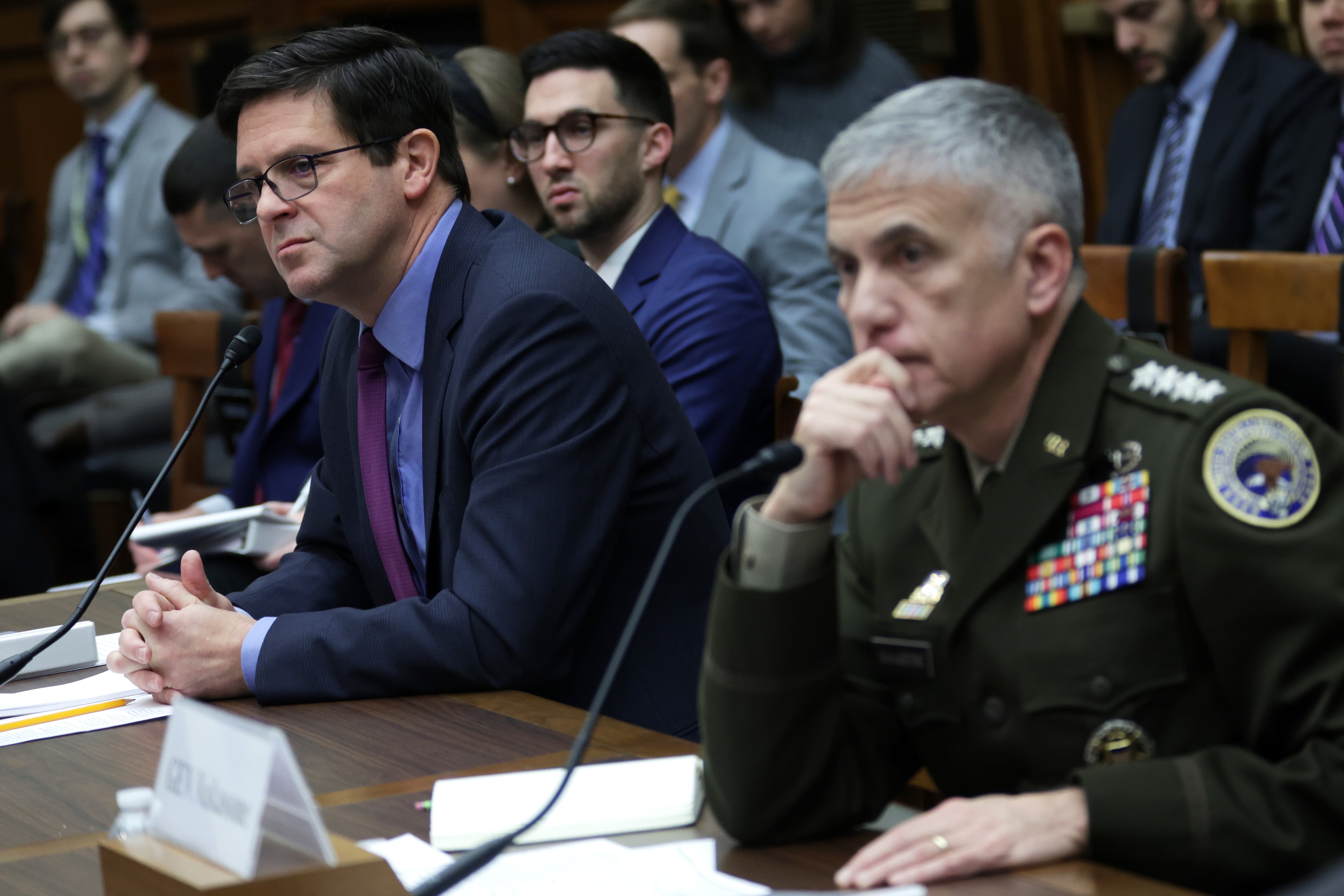NATIONAL HARBOR, Md. — President Joe Biden nominated Marine Corps cyber boss Maj. Gen. Ryan Heritage to be the next deputy commandant for information.
Heritage, who is expected to gain a star as a lieutenant general, has served as the commander of Marine Corps Forces Cyberspace Command at Fort Meade, Maryland, since 2021. In January, he also took the helm of Marine Corps Information Command, an entity Commandant Gen. David Berger championed in an update to Force Design 2030.
Should the Senate confirm him, Heritage will succeed Marine Corps Lt. Gen. Matthew Glavy. Senators received the nomination March 30, one day before the Pentagon announced Heritage’s prospective move. The announcement did not say where Glavy is headed next.
RELATED

As the deputy commandant for information — a role created years go — Glavy oversaw the rollout of Marine Corps Doctrinal Publication 8, or MCDP 8, a catalog of the latest philosophies regarding information warfare, military data and media literacy. It’s one of several MCDPs that outline the tactics, techniques and procedures of the corps, the first of which was published more than two decades ago.
“We’ve been complacent in just assuming information is like the air we breathe,” and that there is no consequence to using it incorrectly, Glavy told reporters in June. “History is telling us, current events are telling us, that approach will not work, either mid-term or long-term.”
Information warfare is a fusion of offensive and defensive electronic capabilities and cyber operations. It combines data collection, awareness and manipulation to gain an advantage before, during and after battles.
Colin Demarest was a reporter at C4ISRNET, where he covered military networks, cyber and IT. Colin had previously covered the Department of Energy and its National Nuclear Security Administration — namely Cold War cleanup and nuclear weapons development — for a daily newspaper in South Carolina. Colin is also an award-winning photographer.








